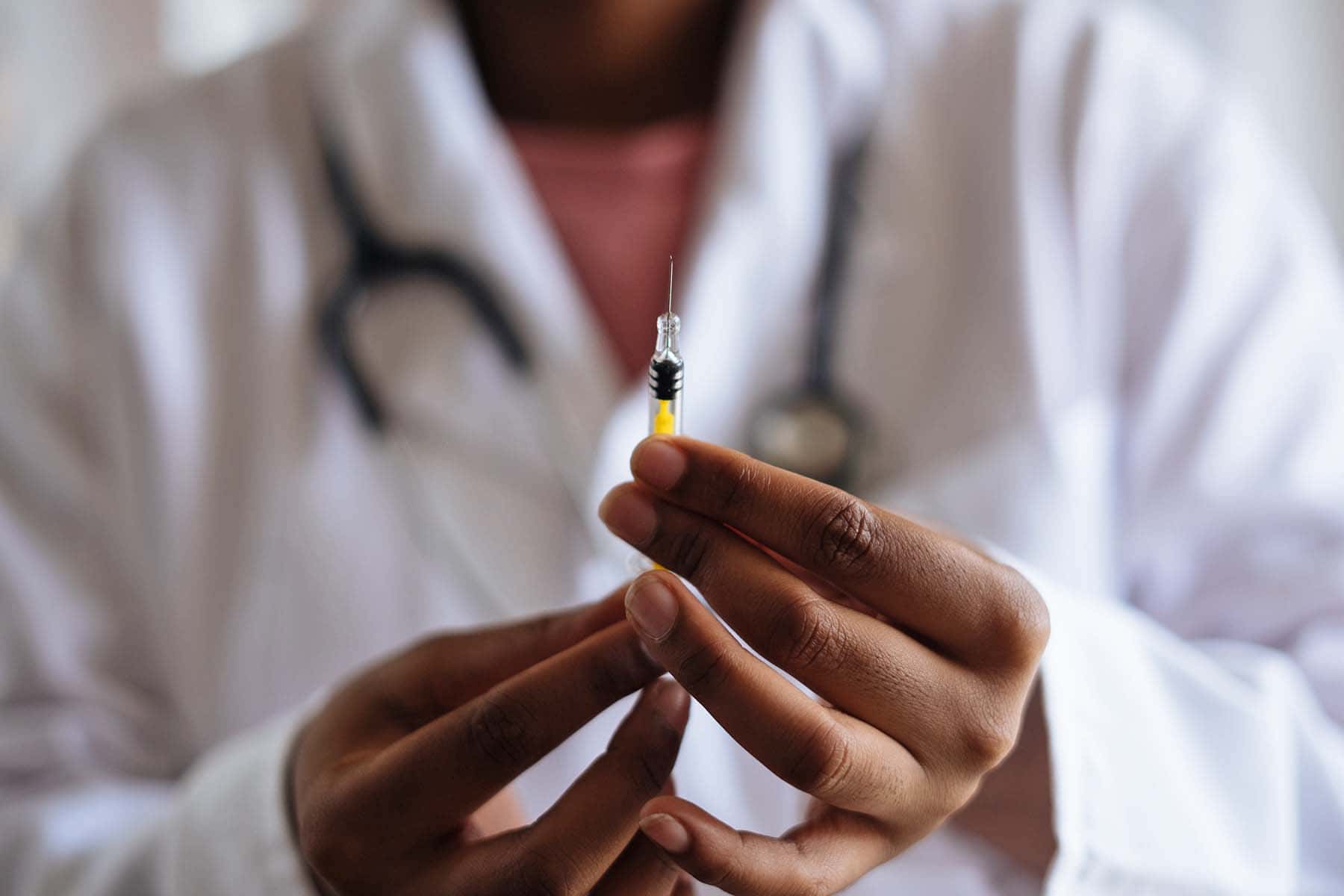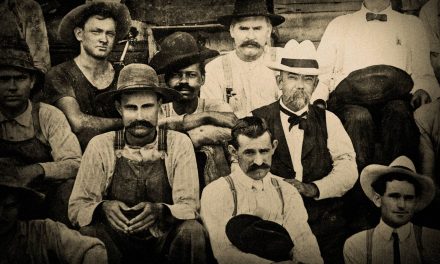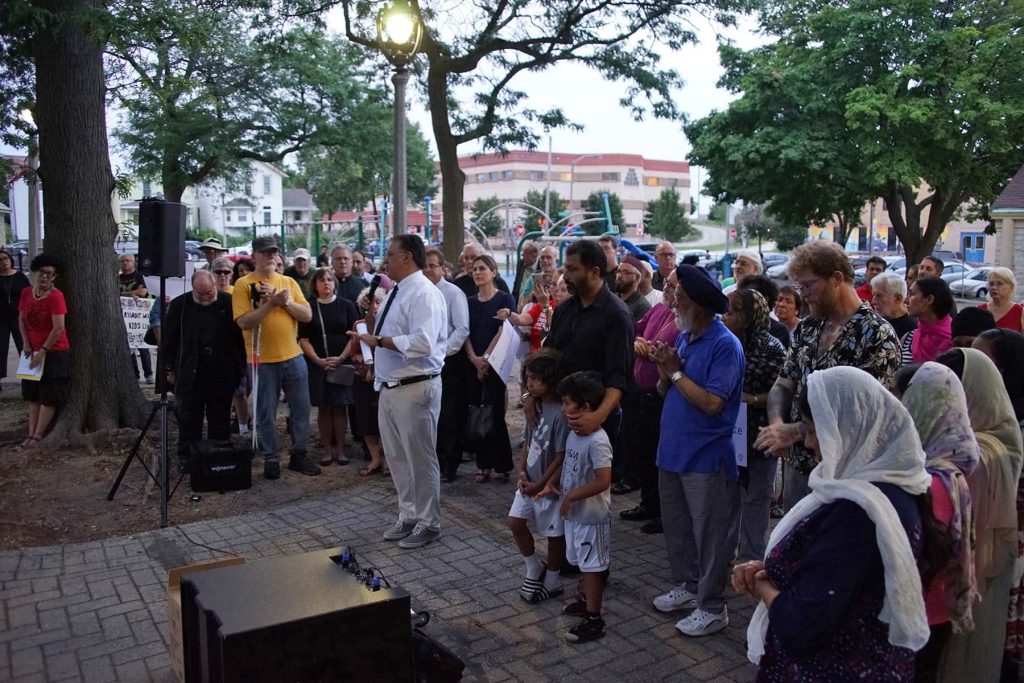
“Of all the forms of inequality, injustice in health is the most shocking and the most inhumane.” – Rev. Dr. Martin Luther King Jr.
There has been a great deal of conversation and analysis of why people in the Black community have trust issues with the COVID-19 vaccine. Many have mentioned the Tuskegee Syphilis study as a main cause of this distrust. Trust me. It’s not Tuskegee. That horrible “study” has played some role for sure, but there is a boatload of reasons that our community has a lack of trust in the medical and research community in this country.
For those unfamiliar with the 40-year long Tuskegee Study of Untreated Syphilis in the Negro Male, the U.S. Public Health Service intentionally withheld treatment from hundreds of Black men with syphilis from 1932-1972 to see how it would manifest itself in an untreated state.
“I would never have a procedure done here: I’ve seen too much. To them, if you’re black and poor, you’re nothing but a guinea pig.” A ward clerk in a nephology unit quoted in Harriet Washington’s Medical Apartheid: The Dark History of Medical Experimentation on Black Americans from Colonial Times to the Present
Mistrust is built into systems of inequality. To expect that a system that has continually treated Black people differently than White people to not embed trust issues in Black people makes no logical sense.
I was an audience member in a program recently where Thomas A. LaVeist, PhD, Dean and Weatherhead Presidential Chair in Health Equity at Tulane University said the words that gave me the title for this article. His bio at Tulane describes his work.
“LaVeist seeks to develop an orienting framework in the development of policy and interventions to address race disparities in health-related outcomes. Specific areas of expertise include: U.S. health and social policy, the role of race in health research, social factors contributing to mortality, longevity and life expectancy, quantitative and demographic analysis and access, and utilization of health services.”
I was entranced by his humble nature and wealth of knowledge. Dr. LaVeist spoke about his research on mistrust of medical practitioners by African Americans. One of the articles he co-wrote on the topic is, Attitudes about racism, medical mistrust and satisfaction with care among African American and white cardiac patients in “Medical Care Research and Review” in 2000. Another is, Race and trust in healthcare in “Public Health Reports” in 2003. And a fascinating article is, The Legacy of Tuskegee and Trust in Medical Care: Is Tuskegee Responsible for Race Differences in Mistrust of Medical Care? in the “Journal of the National Medical Association” in 2005.
Needless to say, Dr. LaVeist is well versed on the issue of mistrust of the medical system in this country as it pertains to African Americans. This portion of the abstract for the last article mentioned is instructive.
“Findings show no differences by race in knowledge of or about the Tuskegee study and that knowledge of the study was not a predictor of trust of medical care. However, we find significant race differences in medical care mistrust. CONCLUSIONS: Our results cast doubt on the proposition that the widely documented race difference in mistrust of medical care results from the Tuskegee study. Rather, race differences in mistrust likely stem from broader historical and personal experiences.”
What his research shows is that many people, Black and White alike don’t know anything about the Tuskegee Study. Furthermore, knowledge of it cannot predict trust of medical care. The issue is much bigger than what we hear so many say about the current state of mistrust of the COVID vaccines.
As a general rule, we learn very little about the history of how Black people have been treated by the medical system over most of American history. Likewise, we very rarely hear about the differences in how Black people are treated by medical practitioners when they receive care today. Combining these two knowledge vacuums leaves people to believe someone that says it’s all about Tuskegee.
“Mistrust may be associated with underutilization of health services, a greater likelihood of refusal to participate in clinical research, reduced proclivity to donate organs or biological material, and more concern about unwitting enrollment in potentially harmful medical experiments. The mistrust expressed by African Americans has been attributed to a number of factors, including limited access to the medical care system, a consequence of historical segregation in hospitals, and discourteous treatment and maltreatment by hospital personnel and healthcare professionals.” – The Legacy of Tuskegee and Trust in Medical Care: Is Tuskegee Responsible for Race Differences in Mistrust of Medical Care?
So as we asses the disparities in trust of the vaccines based on race let’s not be of the mindset that it is a simple conversation. It requires a more nuanced understanding of the past and current manifestations of differential treatment within the medical establishment. The current disparities in vaccination is also directly related to access barriers as well.
In their study less than half of Black (41.7%) and White (44.6%) respondents had even heard of the Tuskegee study. There were major misconceptions believed by many including how long the study lasted, how long ago it ended, how many men were part of the study, and whether the men had or were given syphilis.
“…these findings emphasize that Tuskegee is not a central event in the African-American ethos; instead for some, the Tuskegee study represents another example of why the medical system cannot be trusted…The results suggest that it is time that we move beyond Tuskegee as a catch-all for why African Americans mistrust medical care and begin to address the root causes…Addressing medical mistrust must begin with a process of engagement with African Americans on the part of medical care providers as well as researchers. However, once breached, trust is difficult to re-establish.”
This is the greatest challenge. It is like dealing with a cheating spouse. Once trust is broken, it is very difficult for things to go back to where they should be. If someone becomes aware of the history of mistreatment, and understands the current levels of differential treatment it creates a huge challenge to turn things around. Despite this, we must work to overcome the multi-level disparate outcomes in health outcomes we see daily.














